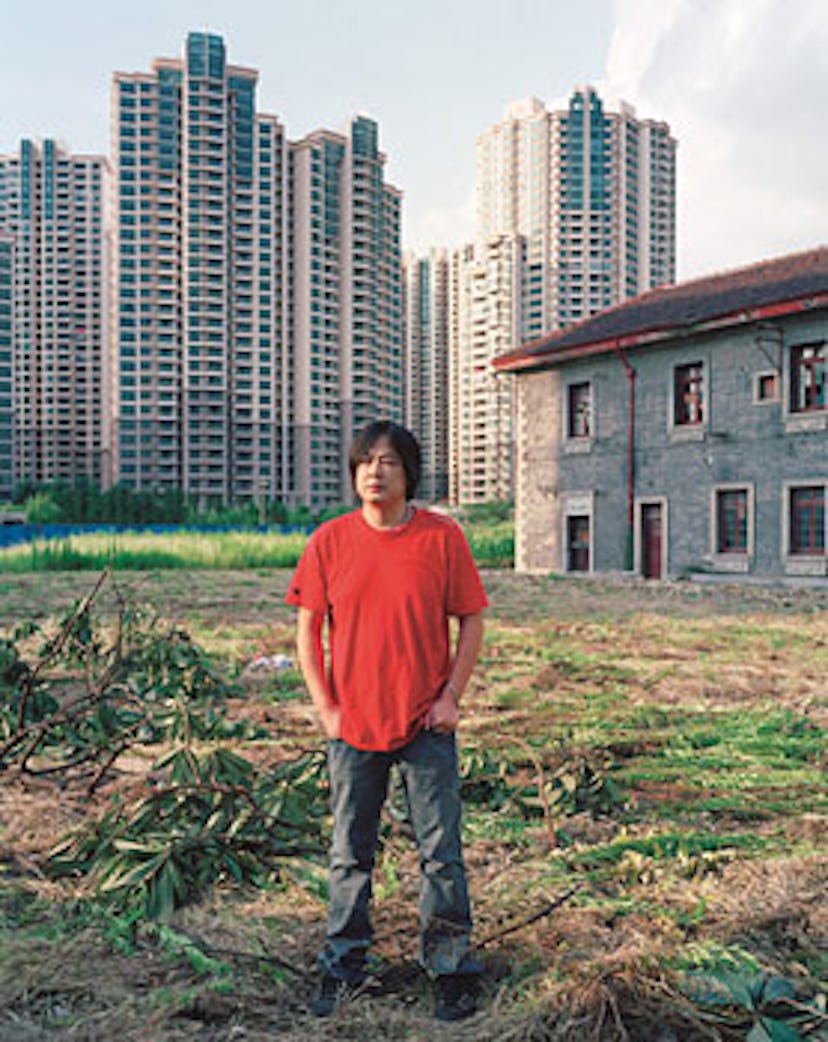As the son of an army officer, growing up in a military compound on the eastern edge of Beijing, Yang Fudong didn’t get much exposure to art. “I wanted to be a soccer star,” the soft-spoken 36-year-old explained recently, while chain-smoking Double Happiness cigarettes at a café on Shanghai’s gallery-lined Moganshan Road. “But one day when I was eight or nine the ball hit my eye, and I got badly hurt. While it healed I couldn’t do any physical activity, so I calmed down and started to draw.”
Yang is now one of China’s most sought-after artists. In the past five years his photographs and film installations have been the subject of solo exhibitions in nine different countries, including a show last year at the Marian Goodman Gallery in New York. His most significant project to date, the five-part film Seven Intellectuals in Bamboo Forest, is prominently featured at this year’s Venice Biennale. Pensive and elliptical, it’s shot on 35mm in black and white and follows a group of melancholy young Chinese as they linger in various settings, from a mountaintop to the seaside to Shanghai, creating an effect that New Yorker critic Peter Schjeldahl has called “part scroll painting, part neo-Antonioni, and altogether entrancing.”
Many Western critics have interpreted Yang’s art as expressing the uncertainties of young people in a country where the past is quickly vanishing. The artist himself, however, resists such analysis. “It’s great that China is developing so fast—great for everyone. Why wouldn’t it be?” he says. “I think what’s important is to face life earnestly, and that has something to do with my films.”
Robert Storr, curator of the Biennale and dean of the Yale School of Art, thinks Yang’s films hark back to the French New Wave of the Sixties. “There’s a kind of poetic naturalism in what he does,” Storr says, “that one doesn’t often see in Western art these days.” Yang admits he was affected by auteurs like Truffaut, Godard and Fellini, his favorite, but not in the usual way. Even as a student at the elite China Academy of Fine Arts in Hangzhou, he rarely had access to European films. Instead, he says, “I read a lot about them in books, and had to imagine what the films would be like. Before I saw Fellini’s 8½, I had my own 8½ in my head.”
It was at Hangzhou, from which Yang graduated in 1995 with a degree in oil painting, that he first saw the possibilities of the new media. “All I knew before Hangzhou was realistic painting,” he recalls. “Then, in my first year there, a visiting German art critic gave a seminar on modern art, including a lot of photography and film and video art, and it opened my eyes.”
In 2000, after a few years working for a video-game company, Yang was able to focus on his art full-time, buoyed by the increasing international demand for contemporary Chinese works. In the new entrepreneurial China, even Yang’s father, who the artist says raised him with strict military discipline, approves. “He used to be against my being an artist,” Yang says. “He thought I wasn’t doing the proper thing with my life. But when my art started making money, he started to feel that it was a good thing.”
Read about other emerging artists: Adel Abdessemed David Altmejd Carol Bove Cao Fei
